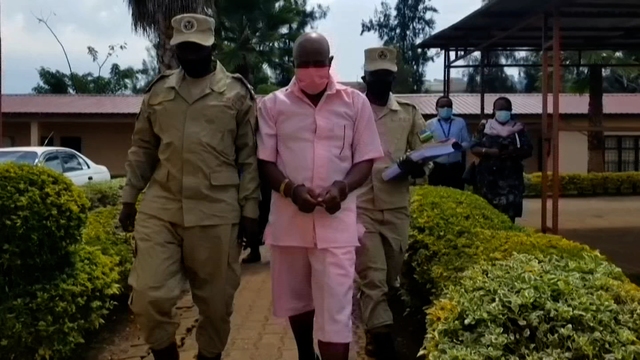Paul Rusesabagina and Transnational Repression
Dictatorial governments are reaching beyond their borders to silence critics
 Paul Rusesabagina sheltered thousands of refugees during the Rwandan genocide, later depicted in the film Hotel Rwanda. In 2020, he was convicted of terrorism, after being secretly flown from the United States to Rwanda in order to stand trial.
Paul Rusesabagina sheltered thousands of refugees during the Rwandan genocide, later depicted in the film Hotel Rwanda. In 2020, he was convicted of terrorism, after being secretly flown from the United States to Rwanda in order to stand trial.
It was in Hotel des Milles Collines that Paul Rusesabagina heroically sheltered thousands of refugees during the Rwandan genocide. He went on to found a political party, becoming a target for Rwanda's authoritarian leader Paul Kagame. After flying from his home in Texas to Dubai, he was taken via private plane against his will to Rwanda, where he was convicted of terrorism: an act of what some are calling 'transnational oppression'. 'Transnational oppression is the effort by coercion or intimidation to silence the voices of [exiled] critics of authoritarian regimes', explains president of nonprofit Freedom House, Michael J. Abramowitz. Rather than a legal extradition, Rusesabagina was essentially kidnapped. 'If the Rwandan authorities had a basis for this, they could have lodged an extradition request. But instead he was subject to rendition and taken back to Rwanda', explains Sarah Jackson, a regional director for Amnesty International. 'If they had presented a formal request for extradition, it would have never withheld a test of a judge, this is why they decided to kidnap him', says Rusesabagina's attorney.
FULL SYNOPSIS

